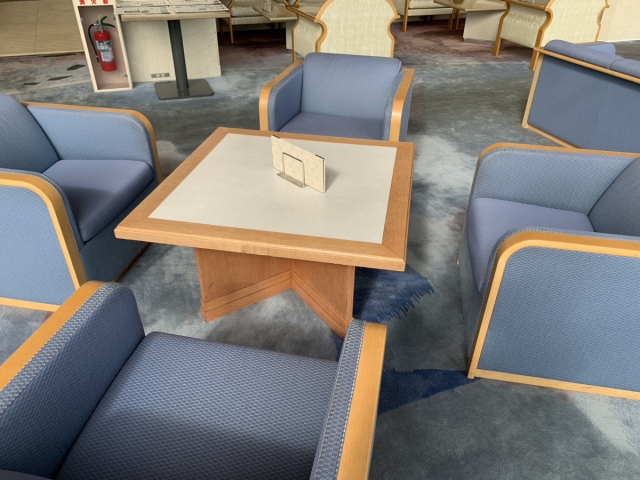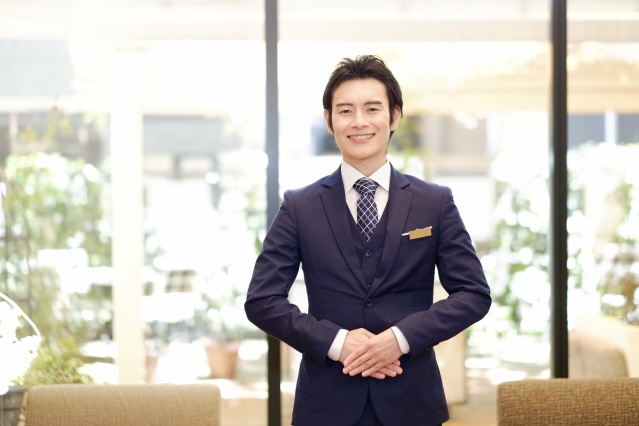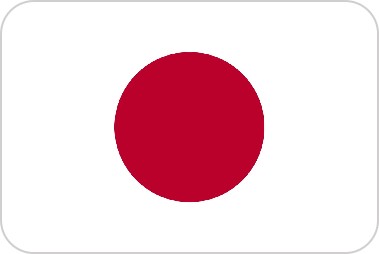Language
Hotel work involves welcoming guests warmly and providing services that will ensure they have a comfortable stay. In Japan in particular, careful, high-quality service and a spirit of hospitality are highly valued. For this reason, it is important to know what type of residence status and skills are required to work in a Japanese hotel, and what type of person is required.
Also, the labor shortage is a major problem in the Japanese hotel industry. More and more hotels are posting job openings for foreigners, so it’s a great opportunity for people who want to work in Japan.
In this article, we will clearly explain the skills required in Japanese hotels and the characteristics of people who are suitable for the job. If you are thinking about making a name for yourself in the Japanese hotel industry, be sure to read this article!
目次
Skills required to work in a Japanese hotel

Working in a Japanese hotel requires a variety of skills. Let’s take a look at what skills are required.
The spirit of hospitality
In Japanese hotels, the spirit of hospitality is very important. For example, if a guest has luggage, you are expected to consider the other person’s feelings when acting, such as offering to carry it for you or preparing towels on a rainy day. Rather than simply carrying out assigned tasks, staff are highly evaluated for being able to think from the guest’s perspective and act proactively.
It is important to always be aware of your surroundings and have the desire to show hospitality to guests.
Various language skills
Hotels accommodate not only Japanese guests, but also many foreign tourists. Therefore, it is easier to be active in various situations if you can speak not only Japanese, but also English, Chinese, Korean, etc. Front desk staff are often asked by customers for directions and questions about tourist spots. When dealing with non-Japanese customers, even knowing simple English words and phrases will greatly expand the scope of your work, and in situations where communication is difficult, being able to use gestures and maps will make things smoother.
There are also situations where you can make use of your own native language. If you can serve customers who speak the same language, you will be able to provide more attentive customer service and the hotel will be more highly rated.
In this way, staff who can serve in languages other than Japanese are also valuable for hotels. By honing your language skills, you will also have more opportunities to advance your career.
Physical strength and endurance
Hotel work is often done standing up, and some jobs require carrying heavy objects, so having sufficient physical strength is an advantage. For example, housekeeping requires cleaning several rooms a day. Extra beds may also need to be carried if necessary, so people who are confident in their physical strength will find it easy to succeed.
Bell staff who carry customers’ luggage and front desk staff who work standing up most of the day also require physical strength and endurance, so daily physical fitness and health management are essential.
Problem-solving skills
Unexpected problems can occur in hotels. For example, double bookings, broken room facilities, guests losing their room keys, and many other problems can occur.
In these situations, you need someone who can think of a solution on their own, rather than just calling your boss. If you can think of the best way to respond to customers and act quickly, it will not only benefit you as a staff member, but also the hotel as a whole. Always be aware of acting while anticipating problems so that you can respond calmly in any situation.
People who are suitable for working in a Japanese hotel

Next, we will introduce the characteristics of people who are suited to working in a hotel.
Someone who likes interacting with people
Hotel work is suited to people who enjoy interacting with others, as it often involves direct contact with customers. For example, front desk staff are responsible for checking customers in and out, and are expected to always greet them with a smile. Restaurant and bell staff also often converse with customers, so friendliness is important.
People who enjoy talking to people and can enjoy communicating with customers at any time will find working at a hotel rewarding.
People who value teamwork
Hotels are looking for people who can work cooperatively as part of a team.
Hotel work is not something that can be done by one person alone. The front desk accepts guests, the bell staff carries luggage, the cleaning staff cleans rooms, and so on – each person in charge works together to provide comfortable service to guests. It is important to help each other get the job done, especially during busy times.
For this reason, people who value teamwork and can work cooperatively with those around them are likely suited to working in a hotel.
Someone who is good at communicating
Working in a hotel requires communication not only with customers, but also with other staff members. At a hotel, you will work together with a variety of staff members, including those at the front desk, in the restaurant, and at the cleaners. In order to work well together, it is important to share information correctly and communicate effectively with those around you.
People who can work while keeping in mind the principles of “report, contact, and consult,” also known as “ho-ren-so” for short, will likely find it easy to succeed in a hotel.
People who want to understand Japanese manners and culture
People who are willing to learn Japanese manners and culture and provide customer service in accordance with them will find it easy to work in a hotel.
In Japanese hotels, you are expected to respect Japanese manners and culture. Many hotels value Japanese etiquette and the concept of service, such as bowing when greeting, being punctual, and using polite language. Therefore, if you want to work in a hotel, it is important to try to learn Japanese manners and culture through your work. Even if you don’t understand something at first, if you are willing to understand, you will make a good impression on customers, so try to learn little by little.
Get the necessary residence status and skills and work in a hotel!

This time, we explained the necessary residence status and skills required to work in a Japanese hotel, as well as the characteristics of people who are suitable for the job.
To work in a hotel, you need to obtain a residence status such as “Specified Skills” “Accommodation Industry” or “Food Service Industry”, Technical/Humanities Specialist/International Business, or Permanent Resident. The working hours and scope of work vary depending on the residence status, so choose one that suits you. In addition, hotels require many skills, such as language skills, physical strength, and a spirit of hospitality. Even if you don’t have all the skills, if you like interacting with people and value teamwork, you will be suited to working in a hotel.
Opportunities for foreign staff to play an active role are expanding in the Japanese hotel industry. If you acquire the necessary skills and obtain a residence status that suits you, you can try working in a Japanese hotel.
バリプラGlobal, run by Value Staff, provides employment support for foreigners who want to work in Japanese hotels and inns. We have a comprehensive support system in place, including visa applications and immigration procedures, so that you can work in Japan with peace of mind. We also introduce jobs that specialize in the “accommodation industry” and “restaurant industry,” so if you’re interested, please check out the links below!
「外食業」「宿泊業」に特化した外国人の就職サポート バリプラGlobal
- 26 articlesRecent posts
- ホテルコンシェルジュとはどんな職業?仕事内容や必要なスキルを紹介!【外国人向け】
- ホテルの事務職の仕事内容を紹介!どんなスキルが求められる?【外国人向け】
- Công việc marketing khách sạn bao gồm những gì? Giới thiệu mô tả công việc và mức lương hàng năm cho người nước ngoài!
- Khách sạn có những vị trí quản lý nào?Giới thiệu dễ hiểu về công việc và mức lương dành cho người nước ngoài muốn làm việc tại Nhật Bản
- ホテルのマーケティングは何をする?仕事内容や気になる年収を外国人向けに紹介!
- 7 articlesRecent posts
- Bạn nên trả lời thế nào khi được hỏi về điểm mạnh và điểm yếu trong buổi phỏng vấn? Giải thích dễ hiểu cho người nước ngoài! [Có đáp án mẫu]
- [Dành cho người nước ngoài] Bạn nên mang theo những gì khi đi phỏng vấn khách sạn? Một bản giới thiệu rõ ràng về những vật dụng hữu ích!
- 面接で長所と短所を聞かれたらどう答える?外国人向けに分かりやすく紹介!【回答例付き】
- 【外国人向け】ホテルの面接で必要な持ち物は?あると便利なアイテムも分かりやすく紹介!
- [Dành cho người nước ngoài] Chuẩn bị phỏng vấn xin việc làm trong ngành khách sạn! Những câu hỏi thường gặp và những điểm chính để được tuyển dụng
- 7 articlesRecent posts
- 【Ứng xử qua điện thoại bằng tiếng Nhật】Giới thiệu các phép lịch sự và cụm từ mà người nước ngoài nên biết!
- 【日本語の電話対応】外国人が知っておきたいマナーとフレーズを紹介!
- Giới thiệu những điều cơ bản về cách viết email công việc cho người nước ngoài! [Có câu ví dụ]
- ビジネスメールの基本の書き方を外国人向けに紹介!【例文付き】
- Nghi thức kinh doanh của người Nhật là gì? Những quy tắc và văn hóa cơ bản bạn nên biết trước khi làm việc
- 3 articlesRecent posts
- 7 articlesRecent posts
- Hướng dẫn đi tàu điện Nhật Bản dễ hiểu! Hãy tuân thủ đúng quy tắc khi sử dụng tàu điện [Dành cho người nước ngoài]
- Giới thiệu luật giao thông Nhật Bản! Những điều cần biết để sống an toàn [Dành cho người nước ngoài]
- 日本の電車の乗り方をわかりやすく紹介!マナーを守って利用しよう【外国人向け】
- 日本の交通ルールを紹介!安全に暮らすために知っておきたいこと【外国人向け】
- Nếu người nước ngoài bị mất hộ chiếu ở Nhật Bản thì sao? Một lời giải thích đơn giản về những việc cần làm
- 7 articlesRecent posts
- [Dành cho người nước ngoài] Giới thiệu dễ hiểu về các thuật ngữ kinh doanh thường dùng được viết bằng chữ katakana!
- 【外国人向け】よく使われるカタカナのビジネス用語をわかりやすく紹介!
- Một giới thiệu dễ hiểu về thuật ngữ dịch vụ khách hàng khách sạn dành cho người nước ngoài! Bao gồm các câu ví dụ sẵn sàng sử dụng
- ホテルの接客用語を外国人向けに分かりやすく紹介!すぐに使える例文付き
- Hãy cùng học cách chào hỏi của người Nhật! Từ lời chào cơ bản đến lời chào kinh doanh
- 7 articles
- 21 articles
- 9 articles















